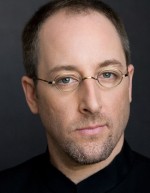Title
Subhead
It’s not a major anniversary for the innovative Hungarian composer György Ligeti (1923-2006), but that didn’t stop faculty member Jeffrey Milarsky (B.M. ’88, M.M. ’90, percussion), the founder of the contemporary music ensemble AXIOM, from programming him. “Why not just celebrate him because he’s a master?” he asked in a recent chat with The Journal. And so, on February 25, the ensemble will present a rare all-Ligeti evening.
Body
The program will feature music from three quite different periods, starting with one of his last completed works, Síppal, dobbal, nádihegedüvel (With Pipes, Drums, Fiddles) (2000), Ligeti’s only percussion ensemble work (it will also feature countertenor Eric Jurenas). Milarsky described it as “an extremely colorful work that explores percussion and voice in new and unique ways.” The first half ends with Ligeti’s early wind quartet Six Bagatelles, which, Milarsky said, was greatly influenced by Bela Bartók in form, melody, and style.
The second half features “two classics that are total masterpieces of the European avant-garde genre, starting with the incredible Concerto for Cello [1966],” Milarsky said. The soloist will be Artist Diploma candidate Jay Campbell (B.M. ’12). That’s followed by the much more well-known Kammerkonzert (1970). “The chamber concerto and the cello concerto are very similar, but seldom heard together,” he noted.
There are several reasons that it’s unusual to have an all-Ligeti program in this country, Milarsky said. “For one thing, it can be expensive because there are many extras—flutes, contrabassoons, a Hammond organ, a celesta—but in our case, we happen to own everything.” Performances are also rare “because this is very challenging music both technically and musically—among the hardest we play. But Ligeti is a master composer, and every student should have the chance to perform everything work that he created.”





